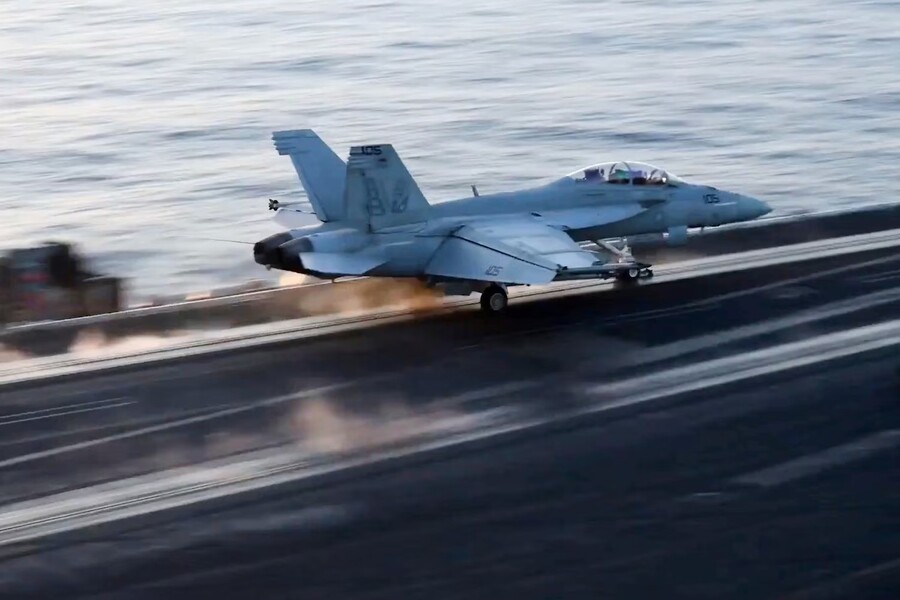In a surprise shift in U.S. foreign policy, President Donald Trump announced Tuesday that the United States will stop bombing Yemen’s Houthi rebels, asserting that the group has agreed to end its attacks on American ships in the Red Sea. However, the Houthis themselves expressed caution, saying they will “evaluate” the ceasefire proposal before committing to it.
The announcement came during a photo-op with Canadian Prime Minister Mark Carney at the White House. Trump claimed the Houthis had communicated their desire to stop fighting and that the U.S. would “honor that.” “They just don’t want to fight, and we will honor that,” Trump said. “They’ve said, ‘Please don’t bomb us anymore, and we’re not going to attack your ships.’” He later emphasized that the source of the message was “very, very good,” though he declined to identify who relayed it.
Secretary of State Marco Rubio and Vice President J.D. Vance appeared alongside Trump, with Rubio reinforcing that the mission had been focused on preserving “freedom of navigation” in global shipping routes. “These guys, these are, you know, a band of individuals with advanced weaponry that were threatening global shipping. And the job was to get that to stop,” Rubio said.
Shortly after Trump’s statement, the Foreign Ministry of Oman confirmed that its diplomatic efforts helped broker the ceasefire understanding. The ministry posted that neither side would target the other in the Red Sea or Bab al-Mandab Strait, aiming to restore safe commercial maritime operations.
Yet, a senior Houthi figure, Mohammed Ali al-Houthi, tempered the optimism. He posted that the group would “evaluate the ceasefire “on the ground first, signaling that a full cessation of hostilities was not immediately guaranteed.
Since March 5, the U.S. has launched over 800 airstrikes targeting Houthi infrastructure in Yemen. One of the deadliest attacks occurred on April 18, when an American strike on the Ras Isa fuel port killed at least 74 people and wounded 171. The military campaign also came at a cost to the U.S.—seven MQ-9 Reaper drones have been lost, each valued at $30 million, and an F/A-18E fighter jet slid off the USS Harry S. Truman and sank into the Red Sea, likely during evasive maneuvers under Houthi fire.
The conflict in the Red Sea began after the Houthis declared in October 2023 that they would target ships linked to Israel’s allies, in response to Israel’s military campaign in Gaza following the October 7 Hamas attack. Since then, the Houthis have launched repeated strikes on vessels with ties—direct or perceived—to Israel or Western powers.
Complicating matters further, Israeli forces launched a series of strikes on Yemen this week, hitting a Red Sea port, cement factories, and Sanaa airport in retaliation for Houthi attacks on Israel. The Israeli Defense Forces said the targets were key elements of the Houthi military infrastructure.
Despite these developments, Trump insisted that the U.S. campaign was strictly about maritime security and dismissed concerns over the Houthis’ ongoing threats against Israel. “They want nothing to do with us,” he said, adding that the rebels had made their intentions clear “through all of their surrogates.”
Meanwhile, the Trump administration has come under fire following revelations that internal communications about Yemen strike plans were shared on a Signal group chat that accidentally included The Atlantic’s Editor-in-Chief, Jeffrey Goldberg. The leak exposed top-level discussions involving National Security Adviser Mike Waltz and Defense Secretary Pete Hegseth. Following the incident, Trump announced that Waltz would leave his Cabinet post and be nominated as the U.S. ambassador to the United Nations.
As of now, the fate of the ceasefire rests on the Houthis’ response and the broader regional dynamics involving Israel, Iran, and other players. Though Trump’s announcement marked a potential turning point, the true end to hostilities remains far from certain.

